I'd put my money on the sun and solar energy. What a source of power! I hope we don't have to wait till oil and coal run out before we tackle that.
Less than five years ago, solar power installation and advocacy websites focused on answering frequently asked questions as, "What happens when it snows?" and "Will my panels work on cloudy days?"
Today's consumers tend to be a bit savvier about solar power and how it generates electricity.
Most consumers now understand that solar energy panels won't work when covered with snow.
They may not know, however, that solar power panels will help keep your roof clean of snow because they melt it faster than standard roof tiles (they attract sunlight).
And yes, solar power panels work on cloudy days - still powering your home with electricity.
Even if you understand the basics, you may still have questions about:
- buying solar power panels
- the best way to finance a solar power system and installation
- solar energy tax credits
- and finding the right solar company for your home.
In fact, many of the questions about solar energy on internet forums today are about the best ways to pay for solar panel installation.
For instance, many consumers are unsure if it's better to lease or buy a solar power panels, and if a battery is necessary to store electricity.
The short answer? It's better to buy, if you can.
And no, a battery isn't necessary, which we'll explain below.
The "Solar News" sub-Reddit (an invitation-only group) has many top-ranking questions about battery back-up technology for grid-tied systems.
And let's not forget the countless others who want to know more about Elon Musk's new solar tile shingles (and whether today's technology for solar cells will become obsolete if his panels work).
We summarized the most frequently asked questions and spoke with experts in the industry to help provide a clear answer.
Our goal? You should be able to sit back and enjoy the sunshine—and the energy cost savings!
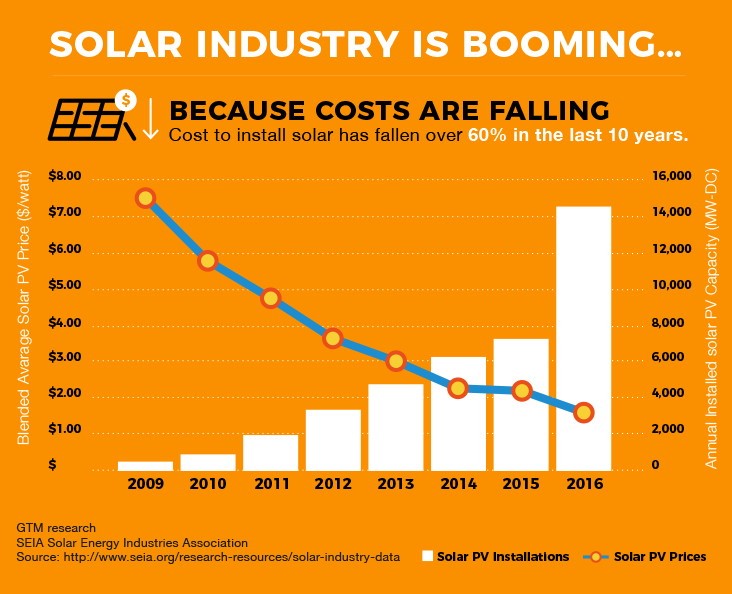
Should I lease or buy my solar panels?
In 2014, 72 percent of those who invested in solar energy leased their panels, but experts say that the trend has shifted.
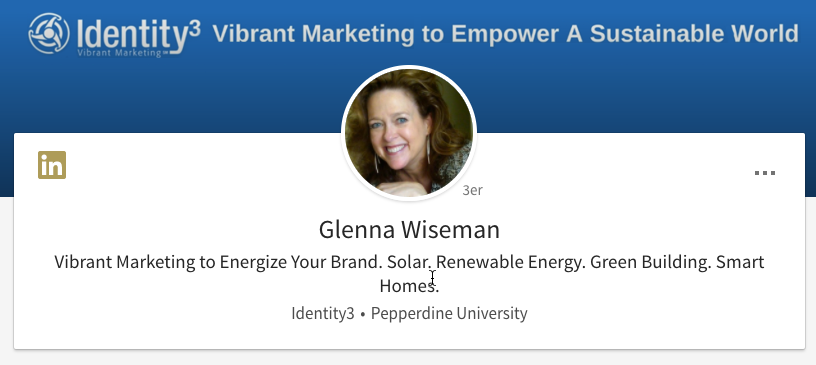
Generally, if you home your home, you should aim to buy your solar panel setup.
Federal income tax credits, combined with any incentives your local government offers toward the purchase, make the choice to buy solar compelling.
The Lawrence Berkeley National Laboratory quoted $4.1/W (or $4.1 to generate 1 watt of energy) for residential systems in 2015, while other recent benchmarks quoted prices between $2.7/W to $4.5/W.
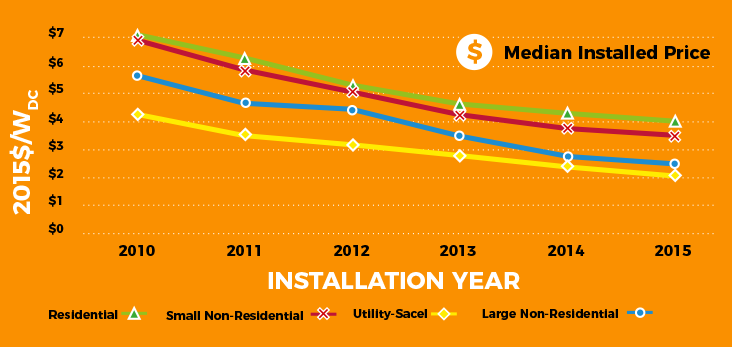
The bottom line?
Costs vary drastically from state to state, and even from zip code to zip code
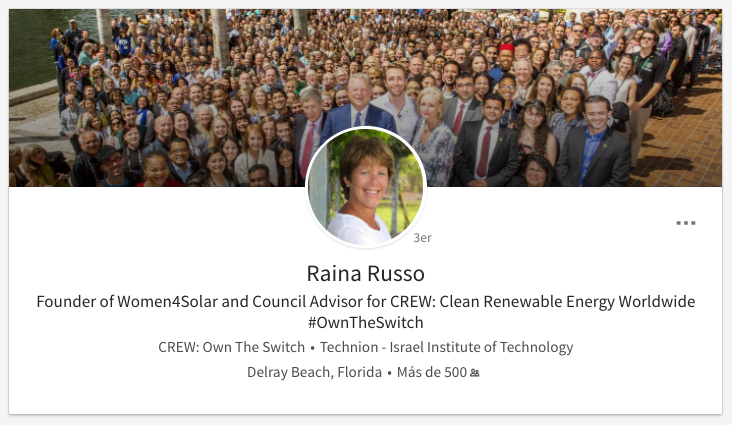
How much you'll pay depends on:
- where you live
- how much of your electric bill you want to offset
- the condition of your electrical panel and roof
- and property variables.
Buying (with a home equity loan, for example) lets you maintain control of your roof and your budget.
In a solar lease arrangement, the installer determines where to place the panels, and may increase your payments by as much as 3 percent per year, which could diminish your return on investment.

"There is no reason to own your home and lease your power," says Russo.
What if I lease my solar panels then want to sell my home?
If you disregard the advice about aiming to buy solar versus lease it, you could face challenges selling your home.
You'll have three options to deal with your solar panels once you decide to leave your leased home:
- You pay the balance remaining on what you owe for the panels and equipment
- The person buying the home qualifies for the lease terms and assumes the payments
- You relocate the system to your new home, which isn't straightforward or easy.
It can certainly be a complicated scenario.
An outright solar panel purchase could lead to a faster home sale and/or higher selling price.
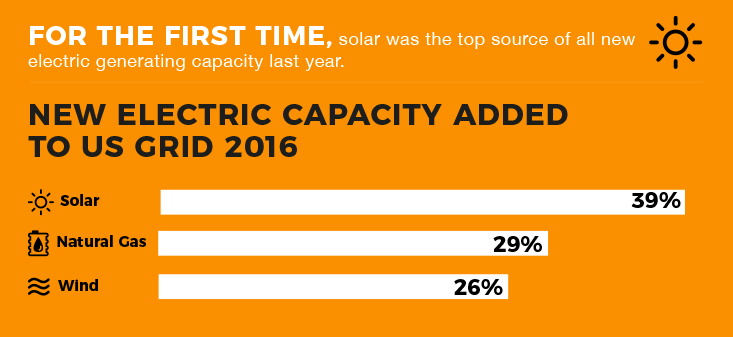
Do I need battery back-up?
Most homeowners don't need battery back-up.
Experts in the industry use the term "net-metering" when referring to managing the electricity your home generates and can send back to a power grid, if connected.

Many people who use solar panels to generate electricity aim to:
- Not pay a dime for the electricity they use
- Get paid by their electricity company as a producer
Net-metering allows solar customers tied to the grid to send power to the grid and also draw power when they need it,
A battery is not required to power your home with electricity
However, if you live in an area where power outages occur frequently, battery backup could replace your generator.
With battery systems improving constantly, it's wise to at least consider it,
Russo agrees, adding, "If battery storage is too expensive for you right now, make sure your system is compatible for future storage hook-up."
An even brighter note? "The day when this technology [battery] will be affordable for nearly any solar customer is not far down the line."
What else is on the horizon in solar technology? Should I wait it out?
SolarCity, recently purchased by Tesla, has announced new solar shingles, a form of Building Integrated Photovoltaics (BIPV).
These glass panels become part of a building's design, improving aesthetics and cost efficiency (so they look awesome on your home and as part of your budget).
I commend Elon Musk for his innovation, breaking through new barriers and expanding our minds,
Yet, the industry maintains some skepticism about the panels, in part because of their cost and in part because the technology is still unproven.
"It's clearly technology to watch," says Russo.
Watch, but don't wait to go solar.
"Homeowners today can reduce their energy costs by up to 100 percent," says Russo.
Depending on incentives and the cost of electricity, savings can average anywhere from $8,000 up to $64,769 over a 20-year time period.
And, solar panel installations, usually warranted for 25 years, typically pay for themselves long before the warranty expires.
Even with the technology advances on the horizon, it's highly unlikely that your solar power system will be obsolete before you pay it off.
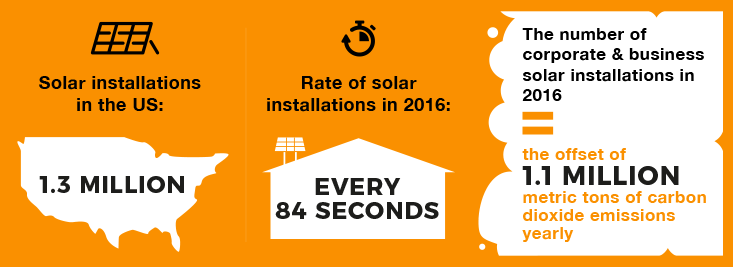
- Solar installations in the US: 1.3 million
- Rate of solar installations in 2016: every 84 seconds
- The number of corporate & business solar installations in 2016 = the offset of 1.1 million metric tons of carbon dioxide emissions yearly
What questions should I ask when I choose a solar installer?
Hiring a solar installer means putting your home in the hands of a contractor. It's important to call their references, read reviews online, and check their Better Business Bureau rating.
Ask your solar installer these questions
Russo recommends shining a light on an installers' reputation by asking these three questions:
- How many installs have you performed?
- Do you warranty the work and, if so, for how long?
- Do you include remote monitoring?
And you'll want to make sure you fully understand all of the details of your contract, including payment terms, and the milestones of the installation.
Ask the right questions so you don't get, ahem, "caught in the dark" about the process.
The sooner your panels can be installed, inspected, and connected to the local utility, the sooner you'll be able to see a return on your investment.

Have you found success with solar? Did you have to make any modifications to your home or landscape to make the panels work? Let us know what worked out best for you in the comments below.
